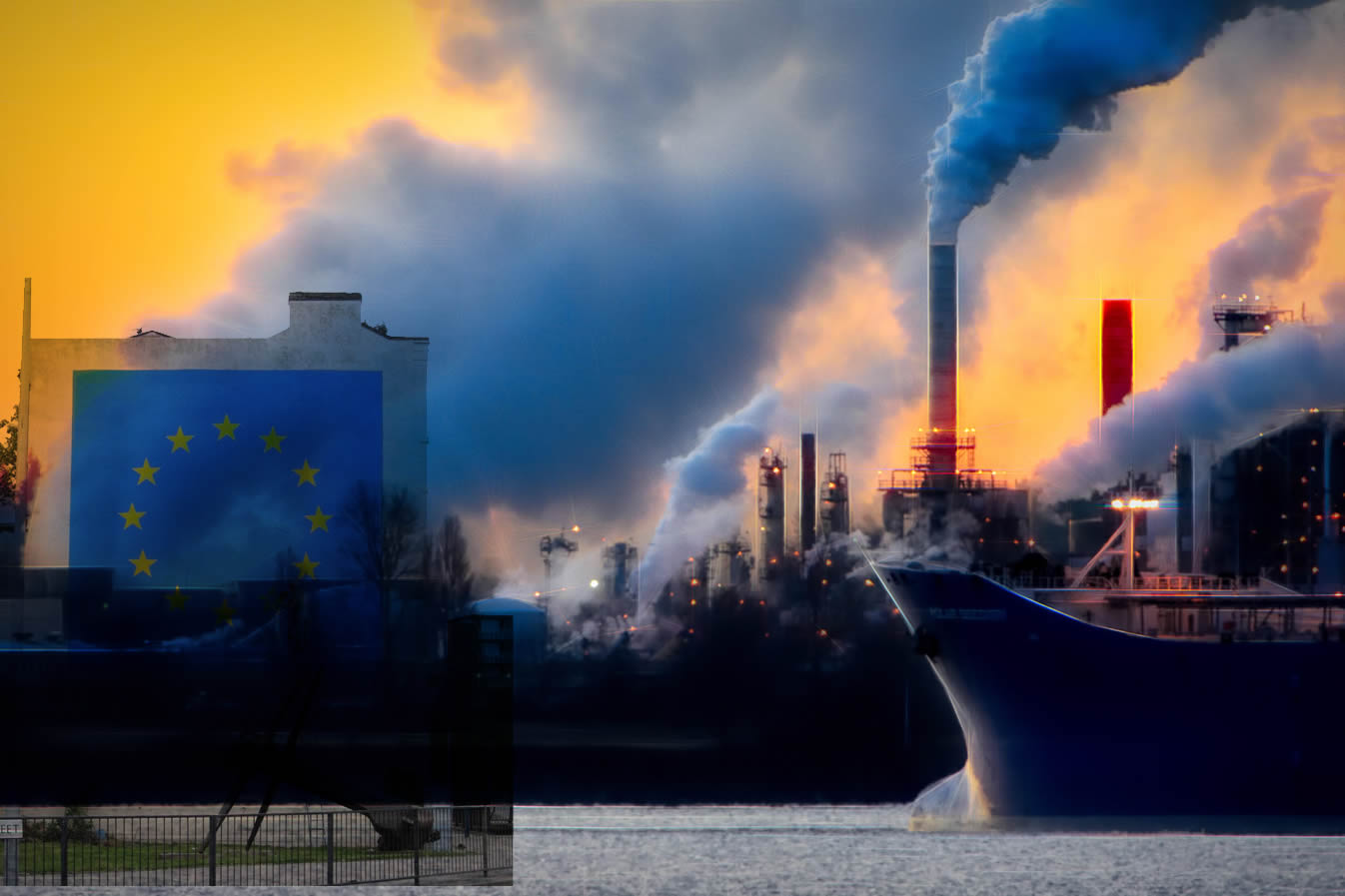Introduction
The European Union (EU) is often hailed as a global leader in environmental protection and climate change mitigation. With ambitious targets for reducing greenhouse gas emissions and a well-developed framework for sustainable development, the EU presents itself as a model for others to follow. However, beneath this veneer of environmental stewardship lies a troubling reality: the EU’s environmental policies and consumption patterns contribute significantly to global carbon emissions, often at the expense of developing countries. This essay explores how the EU’s actions reflect a broader pattern of shifting environmental burdens to less developed nations, undermining global efforts to address climate change.
The EU’s Carbon Emissions and Outsourcing
Domestic Emissions vs. Imported Emissions
The EU has made substantial progress in reducing its domestic carbon emissions. According to Eurostat, the EU-27 reduced its greenhouse gas emissions by 24% between 1990 and 2019. However, this statistic does not account for the emissions embedded in imported goods. A study published in “Nature Climate Change” found that in 2015, 22% of the EU’s carbon footprint was due to emissions in other countries, primarily in developing regions such as China, India, and Southeast Asia. This indicates that while the EU’s domestic emissions may be declining, its overall contribution to global emissions remains significant when considering its consumption patterns.
The Carbon Leakage Phenomenon
Carbon leakage occurs when stringent environmental regulations in one country lead to the relocation of carbon-intensive industries to countries with more lenient regulations. The EU’s strict environmental policies have, in part, driven industries to move their operations abroad, particularly to developing countries with weaker environmental protections. This relocation not only shifts emissions but also transfers the environmental and social costs of production to these host countries. For instance, a report by the Carbon Trust highlighted that carbon leakage rates could be as high as 15-20% for some energy-intensive sectors within the EU.
Environmental and Social Impacts on Developing Countries
Deforestation and Land Use Change
The EU’s demand for agricultural commodities such as palm oil, soy, and beef has driven deforestation and land use changes in developing countries. The European Commission acknowledges that the EU is a major importer of these commodities, contributing to deforestation in regions like the Amazon, Southeast Asia, and Central Africa. According to a 2018 report by the NGO Fern, the EU was responsible for 36% of the deforestation linked to international trade between 2005 and 2013. This deforestation not only releases significant amounts of carbon dioxide but also destroys biodiversity and disrupts local communities.
Air and Water Pollution
The relocation of industries to developing countries has resulted in severe air and water pollution in these regions. For example, textile production, a major industry relocated from the EU to countries like Bangladesh and India, has led to significant water contamination and health issues. A study by the Centre for Environmental Health found that the textile dyeing industry is one of the largest polluters of water in these countries, contributing to diseases and environmental degradation.
Economic and Social Injustice
Exploitative Labor Practices
The EU’s outsourcing of production to developing countries often involves exploitative labor practices. Workers in these countries frequently endure poor working conditions, low wages, and inadequate labor rights. The Rana Plaza disaster in Bangladesh, where over 1,100 garment workers died in a factory collapse, highlighted the dire consequences of the EU’s demand for cheap labor. Despite international outcry, similar conditions persist in many factories supplying European markets.
Loss of Sovereignty and Autonomy
Developing countries often find themselves in a position where they must cater to the demands of developed nations like those in the EU to sustain their economies. This dependency undermines their sovereignty and autonomy, forcing them to prioritize export-oriented industries over sustainable development and the welfare of their citizens. The pressure to comply with EU standards without adequate support exacerbates economic inequalities and hampers their ability to pursue independent environmental and social policies.
The Hypocrisy of Green Policies
The EU Green Deal and Its Contradictions
The EU Green Deal, launched in 2019, aims to make Europe the first climate-neutral continent by 2050. While this initiative is commendable, it does not adequately address the global nature of carbon emissions and the EU’s role in perpetuating emissions through its consumption patterns. The Green Deal focuses primarily on reducing emissions within the EU, without considering the emissions embedded in imported goods. This narrow focus allows the EU to present itself as a climate leader while continuing to rely on carbon-intensive imports from developing countries.
The Carbon Border Adjustment Mechanism (CBAM)
The EU’s proposed Carbon Border Adjustment Mechanism (CBAM) is intended to level the playing field for European producers by imposing a carbon price on imported goods. While this measure aims to prevent carbon leakage, it has been criticized for its potential to disproportionately affect developing countries. Many of these countries lack the financial and technological resources to comply with stringent carbon pricing, effectively creating trade barriers and exacerbating economic inequalities. A report by the International Institute for Environment and Development (IIED) warns that CBAM could undermine the competitiveness of developing countries’ exports, leading to economic hardship without significant environmental benefits.
Conclusion
The EU’s approach to carbon emissions and environmental protection reflects a broader pattern of shifting environmental burdens to developing countries. While the EU has made significant strides in reducing domestic emissions, its consumption patterns and outsourcing of production contribute substantially to global emissions and environmental degradation in less developed regions. This irresponsible behavior not only undermines global climate goals but also perpetuates economic and social injustices.
To address these issues, the EU must adopt a more holistic and equitable approach to environmental protection. This includes acknowledging and mitigating the carbon footprint of imported goods, supporting sustainable development in partner countries, and ensuring fair and just trade practices. Only through genuine global cooperation and shared responsibility can we hope to achieve meaningful progress in combating climate change and protecting our planet for future generations.

Leave a Reply